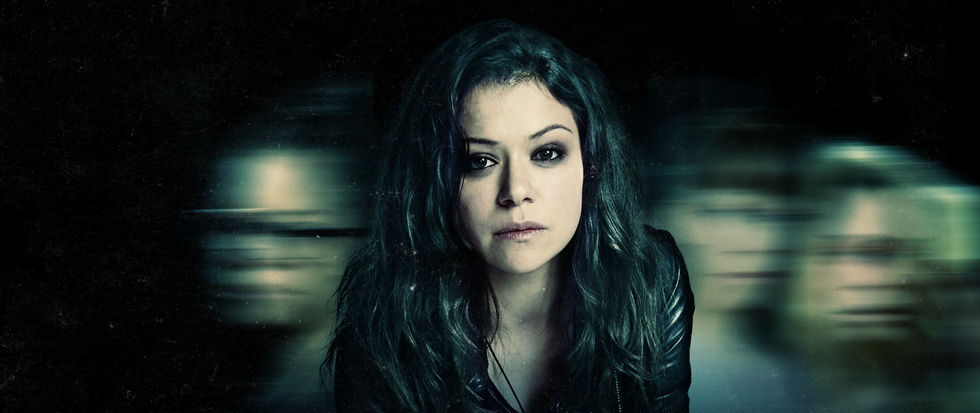
Gang of Clones: The Heart of Orphan Black
There’s much to be said about the revolution in serial televised/streaming storytelling of late—entire server farms stuffed with hot takes about the superiority of longform drama nowadays. Ten hour movies available to marathon at a whim always seemed a bit excessive to me, but perhaps Ingmar Bergman would be proud. I wonder if anyone is plowing through the entire televised run of Scenes from a Marriage, though.
It can’t all be Bergman, of course, nor does every show benefit from a budget like that of Game of Thrones. Plenty have a strong core that supports hasty CGI or endlessly familiar basements and back alleys, usually in Toronto. Such is the unnamed but easily discerned location for most of Orphan Black, which ended its run with a mixture of the usual antics for this show: lots of Skyping, glass and brick hallways, and a dash of undercooked monster and military madness.
While the central conceit is a clone club running around fighting conspiracies and uncovering mutli-national corporate malfeasance, much of the science of this show was speculative and theoretical, and therefore not always displayed on screen. Orphan Black mostly carried itself as a character-based mystery cop procedural, with main clone Sarah leading the charge against the many forces that sought to exploit her sisters and her daughter. Sarah and each of the other Leda clones were played by Tatiana Maslany, a borderline shapeshifter who imbued each of her characters with such individual charm, flaws, and distinction that she truly deserves an award for each and every one (along with the makeup and costume departments). Her skills lie in a fusion of character and lead acting; each of these individuals so realized as to be worthy of their own show.

Beyond even that singular achievement, the real magic was in watching Maslany act against herself throughout each season and then again at the end of each, when the “sestras” would congregate for a family meal, dance party, or the like. With special camera rigs and computerized assistance in hiding the seams, Maslany showcases that not only is she the heart of this show but every other major organ as well, a system of discrete characters all working in tandem. Which isn’t to cast aside the many other fantastic actors, who all fed and thrived on Maslany in pretty much every scene, straight to the end. And among Malany’s many roles, Sarah was the cosmic centerpiece around which every other clone spun and pirouetted.
Orphan Black was not a perfect show, with an appetite often larger than its budget could allow. And for as much as Sarah grounded the narrative, as a character she rode a well-trod beat straight to the final minutes—constant mistrust, perennial self-destructive resistance, an inability to admit fault or ask for care. At times, this coated her character in a sheen of raw irredeemability. While every other character had their threads clipped cleanly, Orphan Black couldn’t help but show how Sarah was cocooned in a jagged shell that mostly served to protect her, until it was the last barrier to her final evolution.
Though it was irritating to watch her surf this wave of ruination for five seasons, Sarah’s questionable decisions were at least consistent. Which made her final turn that much more satisfying, that the myth of steely self-reliance was shed, acknowledging the equation that Orphan Black ran on throughout its run. Nature and nurture are not a walled off, binary system—instead they are an entwined product of a community. For a show running roughshod with genetics and mutants, science and religion, Maslany and the rest of the team carried it through with familial grace and humanity, a rag-tag gang of clones whose greatest strength was convincing the viewer that a much larger cast was sailing the ship all along.





